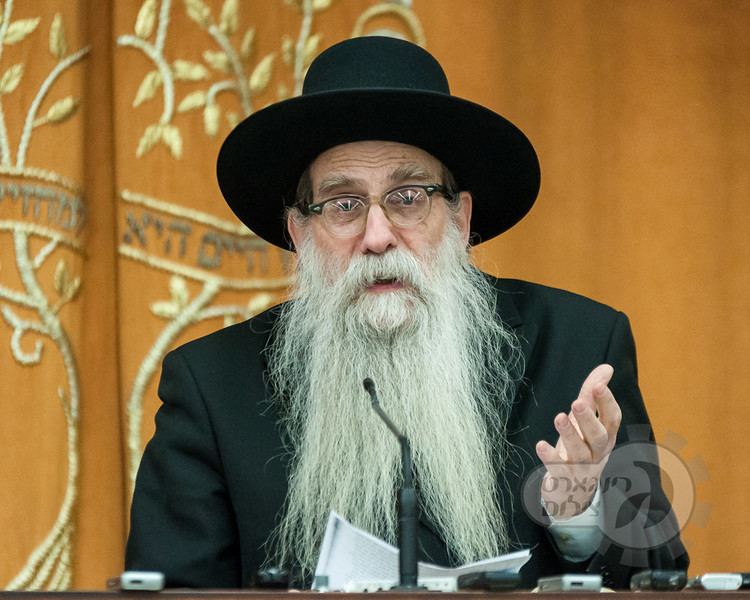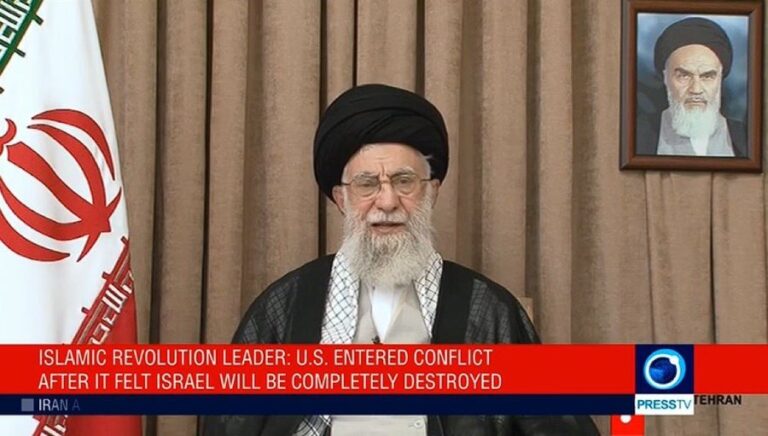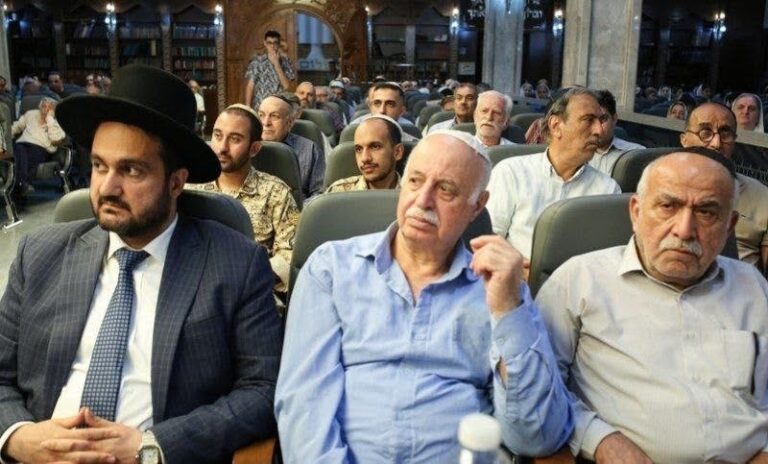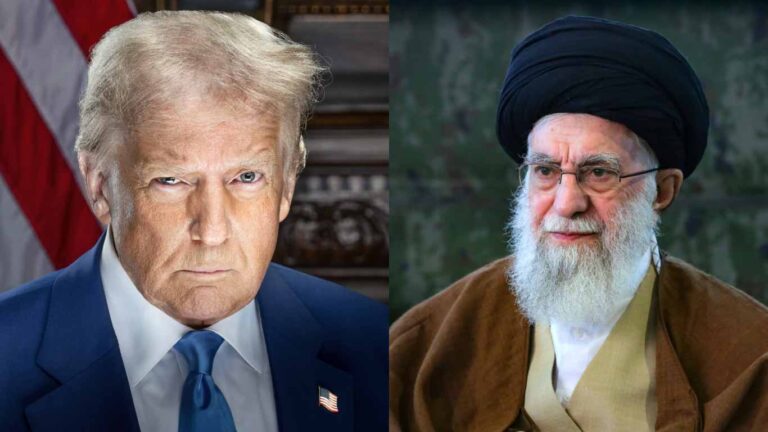Restated by Rabbi Yair Hoffman
They were Malachim
The parsha begins with “And Yaakov sent Malachim to Esav his brother to the land of Seir..” Rashi explains that they weren’t mere messengers. They were “malachim mamash” – actual Malachim.
The Teaching of the Midrash- that tzaddikim are even greater than the Malachim
In discussing this idea – the fact that Yaakov Avinu was able to use Malachim to serve him – the Midrash Tanchuma tells us that from here we see that “tzaddikim are greater than the Malachim.” In fact, says the Midrash, the same thing can be seen later in the parsha from Yaakov’s battle with, and victory over, the angel of Esav. There, too, we see that tzaddikim are even greater than the Malachim.
Why Only by Yaakov? Why not earlier?
There is an obvious question. The Torah has already been discussing Avraham Avinu and Yitzchak Avinu. Yet, never did the Midrash choose to teach us that “tzaddikim are greater than the Malachim.” Why is it specifically from these two episodes, both regarding Yaakov Avinu, that the Torah chose to teach us that tzaddikim are greater than the Malachim? Couldn’t we have learned the very same lesson from tzaddikim such as Avraham and Yitzchak?
The Source of the Answer
The answer may be in the pasuk that the Midrash uses to support this point. In discussing this idea that tzaddikim are even greater than Malachim, the Midrash Tanchuma quotes the pasuk in Yoel that says, “For His camp is great, for he who performs His word is mighty.” With the words “for His camp is great,” says the Midrash, the navi refers to the Malachim. With the next words “for he who performs His word,” says the Midrash, the Midrash teaches us that those who “perform His word” are even greater and stronger than those Malachim. And who, asks the Midrash, are those “performers of His word” that are greater than Malachim?
Understanding Na’aseh V’Nishma
Those “performers of His word,” says the Midrash, are Klal Yisrael, who were “preceded doing before hearing” – and proclaimed “All that Hashem has spoken we will do and we will hear.” They are the “performers of His word.” And they are, therefore, the ones that, as the pasuk says in Yoel, are greater than His great camp – than the Malachim.
The Beis HaLevi’s Teaching
The answer to this question lies in an incredible Beis HaLevi. As we know, when Klal Yisroel said “na’aseh v’nishma,” they were worthy of two crowns. Why, asks the Beis HaLevi, were they worthy of two crowns? While the very fact that they said “We will do” even before they said “We will hear” is most definitely a level that should earn them a crown, what earned them the second crown?
Two Types of Torah Learning
In answering this question, the Beis HaLevi teaches us a crucial principle. There are two types of learning Torah, he says. Firstly, there is, of course, the Torah learning that is necessary for the doing of the mitzvos and keeping the Torah. After all, how can we possibly do the mitzvos and keep the halacha without learning what to do?
However, then there is a second level of Torah learning. There is the learning of one who accepts the yoke of Torah. One can know all the halachos that are necessary for daily life. He can already know all four sections of Shulchan Aruch. He can even know the entire Torah. But he still must learn, because learning Torah isn’t only for the purpose of doing mitzvos. It is for the sole purpose of learning.
Understanding the Two Crowns
And that, says the Beis HaLevi, is why Klal Yisrael was worthy of two crowns. Because they made two acceptances. With those words “na’aseh v’nishma,” they made two separate acceptances. Had Klal Yisrael just said “nishma v’na’aseh,” they would have made an acceptance to learn the Torah that is necessary in order for them to know how to do mitzvos. However, we may have then thought that once one knows how to do the mitzvos there is no longer a need to learn.
The Deeper Meaning of Na’aseh V’nishma
By saying “na’aseh v’nishma,” they were making two acceptances. With the mere word “na’aseh,” they were accepting to learn the Torah and halachos that are necessary for doing the mitzvos and to then do them. After all, one can’t do the mitzvos without learning how to do them. However, by then adding the word “v’nishma,” they were making an entirely different acceptance. They were accepting the yoke of Torah. They were accepting to keep learning no matter what.
The Chasam Sofer’s Insight
The Chasam Sofer in Nedarim suggests a tremendous insight. The Gemara says that the Beis HaMikdash was destroyed because “they did not make a blessing on the Torah first.” Can it be that not making Birchas HaTorah is enough of a reason for the Beis HaMikdash to be destroyed?
Understanding the Nature of Torah Blessings
In addressing this question, the Chasam Sofer quotes that the Gemara says “any mitzvah whose doing is not its final fulfillment, we don’t make a blessing.” When doing a mitzvah that is not the final fulfillment of the mitzvah, one doesn’t make a blessing. Similarly, if one learns Torah as a preparation for mitzvos – simply to know how to fulfill the mitzvos, but his main focus is the doing of mitzvos, then he does not make a blessing. The reason why one makes a blessing on Torah is because the Torah itself is a mitzvah. In fact, as we said earlier, even if one already knows the entire Torah he still must accept to toil in its words. And that mitzvah in and of itself requires a blessing.
The Power of Learning Torah
In fact, continues the Chasam Sofer, if one learns Torah solely for the purpose of knowing how to fulfill the mitzvos then his power of Torah is only the power of mitzvos. His learning, even if done with great diligence, does not possess the power of Torah. In order for one’s learning to possess the holiness of Torah he must be learning “Torah for Torah’s sake.”
Two Approaches to Torah Study
With this he explains two different terms that can be found throughout Chazal: “Torah for Heaven’s sake,” and “Torah for Torah’s sake.” “Torah for Heaven’s sake” – when one learns in order to know how to fulfill the mitzvos – is of course a high level, but it does not possess the power of Torah – only the power of mitzvos. And the power of mitzvos does not provide the same protection as the power of Torah. It only protects a person “at the time that he is engaged in it” – at the time that he is doing the mitzvah (in this case learning).
The Ultimate Protection of Torah
The source of the true protection to which a Jew is worthy at all times, even when he is not learning, is “Torah for its sake” – when a person is learning simply because he accepted upon himself to learn. That category of Torah learning is what Rabbeinu Yonah refers to as “Torah for Torah’s sake” – for the sole purpose of “adding understanding and wisdom and analysis.” It is specifically this Torah – completeness in Torah – that possesses the power “to protect and save us.”
The Special Acceptance of Torah
And we now understand that it was that acceptance of the yoke of Torah – that acceptance to learn Torah for Torah’s sake – to toil in Torah – that Klal Yisrael made when they said “na’aseh v’nishma.” In fact, as we know, when describing the greatness of Shavuos, the Yerushalmi in Rosh Hashanah tells us that by not making any mention of sin among the offerings of Shavuos, Hashem of the World is telling us “Because you accepted upon yourselves the yoke of Torah I consider it as if you have never sinned in your lives.”
The Pnei Moshe’s Explanation
And in explaining that acceptance that the Yerushalmi discusses, the Pnei Moshe writes, “Because you accepted upon yourselves the yoke of Torah that was given on Shavuos – to be toiling in it for all your needs – I will consider it as if you have never sinned.”
The Nature of Torah Acceptance
Much like the Beis HaLevi, the Pnei Moshe is teaching us that the greatness of the Torah acceptance of Klal Yisrael on Shavuos wasn’t the acceptance to learn the Torah that is necessary for our doing of mitzvos, rather the acceptance of the yoke of Torah – the acceptance to be toiling in Torah no matter what.
The Chazon Ish’s Perspective
If you look through the Chazon Ish’s letters you will find a specific idea that he repeats many times. In letter 13 he writes, “The person who merits knowledge of Torah walks among men and appears to the eyes of the beholder as a human being, but in truth he is an angel who lives among mortal men.” Yes, a true Torah scholar isn’t merely a person. He is an angel.
The View of the Mateh Moshe
In truth, this same idea can be found in the Mateh Moshe, which was written by a student of the Maharsha. In discussing the meaning of learning Torah for its sake, the Mateh Moshe in the laws of Shabbos writes that one who engages in Torah for its sake removes and separates himself from all matters of this world. All his thoughts – his entire focus – his whole desire – his only will – is to contemplate the true wisdom of Torah. And due to his tremendous “removal of physicality” at the time of his learning, says the Mateh Moshe, he is “comparable to an angel of Hashem.” In fact, at the end of that paragraph he repeats once again, “And perfection is engaging in Torah for its sake and then he will be comparable to an angel of Hashem.”
The Or HaChaim’s Insight
In truth, the Or HaChaim Hakadosh takes this idea one step further. Before the giving of the Torah, Hashem tells us, “And you shall be for Me a kingdom of priests and a holy nation.” In explaining these words, the Or HaChaim tells us that Hashem wasn’t saying that after one hundred and twenty years, when we go to Gan Eden, we can become a kingdom of priests and a holy nation. He was saying, “You, with your bodies, shall rise and elevate through the Torah more than the Malachim.” Hashem was now giving us the holy Torah, and He was, therefore, now telling us that through that Torah we can become greater than Malachim! Through toil and exertion in Torah a person can become greater than Malachim.
Understanding Yaakov’s Unique Position
With this we can, perhaps, answer the question with which we began. When proving that tzaddikim are greater than Malachim, the Midrash very specifically brings proof from Yaakov Avinu – from the fact that he was able to use them as messengers to Esav and from the fact that he fought and was victorious over the angel of Esav. Why, we asked, is this specific principle learned out from Yaakov and not Avraham and Yitzchak? They were surely tzaddikim as well.
The Three Pillars
However, we now understand that by teaching us this principle specifically from Yaakov Avinu, the holy Torah is teaching us a very important lesson. Avraham Avinu was the pillar of kindness. Yitzchak was the pillar of Avodah – service. Yaakov, however, was the pillar of Torah. It is about him that the verse says, “Give truth to Yaakov.” That word “truth” refers to Torah. And it was Yaakov Avinu that was the pillar of Torah.
Final Message
So let us remember that when we set aside time for toil in Torah, when we enable our children to toil in Torah, when we support those that toil in Torah, we are supporting that power that enables us to become greater than the malachim themselves.
If you would like to receive a weekly parsha sheet on Emes and Integrity please email the word “Subscribe” to [email protected]











